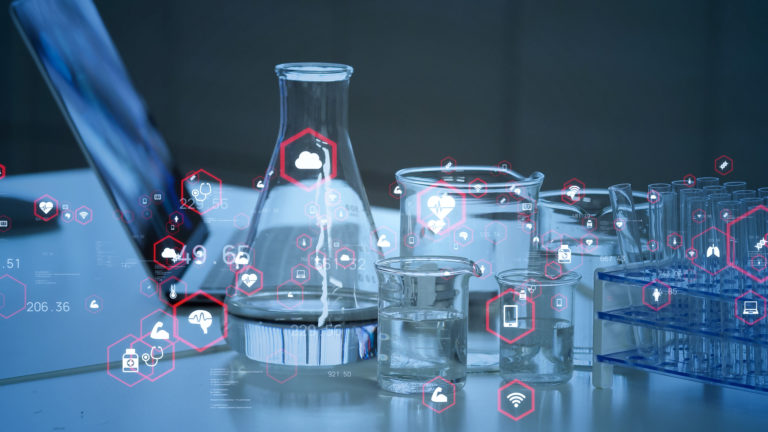Process Characterization in Pharma: How to Achieve Greater Efficiency and Quality in Your Drug Production

Ensuring process efficient and effective manufacturing processes is critical to success in this industry. By characterizing your processes, you can identify any areas where improvements can be made. In this article, we will discuss what process characterization is and how it can help you achieve greater efficiency and quality for life sciences products.
What is Process Characterization?
Process characterization is the study of a process to identify its key variables and determine how those variables can be controlled. It is an essential tool for any organization that wants to ensure quality and efficiency in their manufacturing processes. Process characterization can be used to assess both existing and new processes. When characterizing a new process, it is important to consider all of the potential variables that could affect product quality, including. This both physical variables (examples: time, temperature, mixing speed) and chemical variables (examples: ingredient concentration, pH impurities). Once all of the potential variables are identified, experiments can be conducted to determine which ones actually have an impact on the process. Screening designed experiments test multiple variables at high and low settings to determine which are critical to quality. Response-surface designed experiments evaluate the interaction between the critical variables to identify the optimal setting each critical variable.
What types of organizations can benefit from process characterization?
Process characterization can be beneficial for any organization that manufactures products. This includes pharmaceutical and medical device companies, food and beverage companies, the aerospace industry, and even companies making consumer goods. Process characterization can help organizations to improve the quality of their products and to increase manufacturing efficiency, while enhancing the safety of the products for their customers.
How can process characterization help you achieve greater production efficiency?
Process characterization identifies the variables with greatest impact on the process. Once these variables are identified, a company can establish production and process controls to ensure the process is consistently performed in a manner that optimizes its results. Optimized processes lead to greater efficiency, higher yields, reduced production downtime, and overall improved product quality.
Process characterization requires planning and time, and requires skilled personnel with strong technical acumen. To the casual observer, process characterization can slow the product development lifecycle, and increase startup costs before the product has an opportunity to generate income. However these costs are an up-front investment cost, as important as, or even more important than initial commercialization costs. The reason is process characterization prevents avoidable expenses related to product failures, recalls, backorders, and customer abandonment. As such, process characterization is an essential tool for any organization that wants to ensure quality and efficiency in their manufacturing processes,
What should you consider before implementing Process Characterization?
Before you begin process characterization, it is important to consider the following:
– What are your objectives?
– Which processes need to be characterized?
– What resources (people, equipment, facilities, investment cost) are required?
– What type of data do you need to collect?
By answering these questions, you can develop a clear plan for how to proceed with process characterization. This will help ensure that the process is conducted effectively and efficiently!
How process characterization can help you achieve greater efficiency and quality
Process characterization can help you achieve greater efficiency and quality during production by providing valuable insights into your manufacturing process. By understanding how your process works and what variables impact it, you can make necessary changes to improve efficiency and quality.
Process characterization is Process characterization is a critical step in developing any new manufacturing process. It allows you to identify and control the key variables that will impact your process.
What are the Key Benefits of Process Characterization?
If you want to ensure efficient and effective manufacturing, then you need to characterize your process! There are many benefits to conducting process characterization studies, including the following:
– Process Expertise: Characterization builds organizational expertise by identifying key variables and determining how those variables can be controlled.
– Improved Quality: By understanding the key variables that impact your process, you can more easily control them to ensure product quality.
– Greater efficiency: Process characterization can identify areas where your process is inefficient and suggest ways to improve it.
– Cost savings: By improving process efficiency, you can reduce production costs.
– Reduced risk: Process characterization can help you identify potential risks associated with your process and take steps to mitigate them.
– Enhanced Productivity: Process characterization will maximize product yield and minimize production costs, adding to the bottom line.
How to implement process characterization in your organization
?When conducting process characterization studies, it is important to consider the following:
– What are your objectives?
– What processes need to be characterized?
– What resources are required?
– What type of data do you need to collect?
By answering these questions, you can develop a clear plan for how to proceed with process characterization. This will help ensure that the process is conducted effectively and efficiently. Process characterization is a critical tool for any organization that wants to improve quality and efficiency in their manufacturing processes.
By conducting thorough process characterization studies, you can ensure that your processes are efficient and effective, and that your products meet all quality standards.